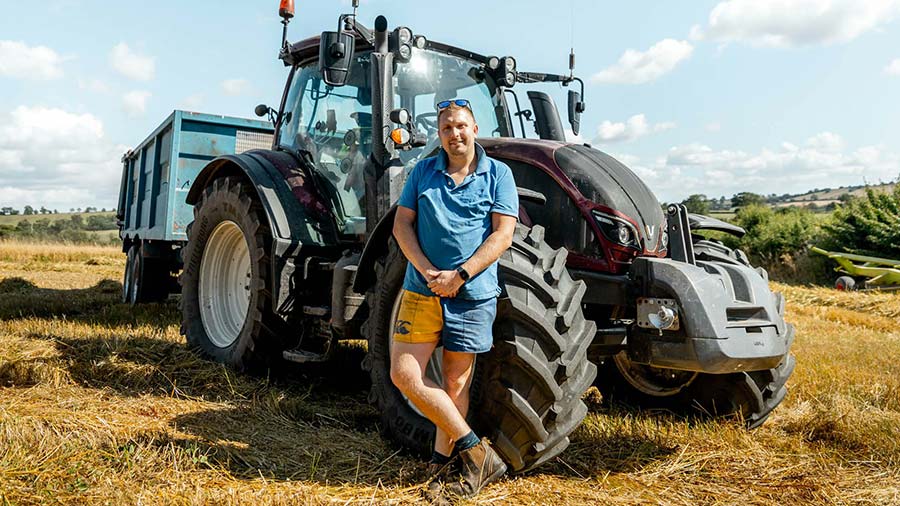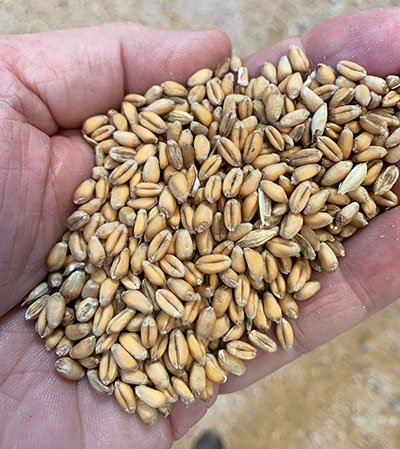Organic farm gives verdict on winter wheat blend
 Head tractor driver fro Godminster Farm, Steve King © Cope Seeds
Head tractor driver fro Godminster Farm, Steve King © Cope Seeds Thanks to an organic winter wheat blend, Godminster Farm in Somerset experienced a bumper harvest this season, with a 0.8t/ha yield uplift compared with straight varieties.
Growing a wheat blend for the first time at the farm near Bruton, farm manager Pete Cheek opted for the Apex mix from Cope Seeds, featuring an equal split of the two varieties Nelson and Extase.
“Blended wheats have been around for a good few years and many arable farmers have been talking about them, so we thought we would give it a go,” says Mr Cheek.
See also: Milling wheat proteins fall, barley nitrogen levels edge up
Operating an organic system based around red clover fertility leys, grazed by the farm’s dairy herd, the crop was drilled at 220kg/ha during October, with varieties suited to the farm’s system.
The wheat was harricombed in, requiring no ploughing, and was then left alone until harvest in August.
Wheat varieties at a glance
- Nelson is a German E wheat bred for use as a milling breadmaker and feed. Strong disease resistance for septoria, mildew, yellow rust and brown rust.
- Extase is a Group 2 variety on the current AHDB Recommended List, known for its good disease resistance with a one-year rating for septoria of 7.3, 8 for yellow rust and 7 for brown rust.
Harvest results
This summer’s heatwaves produced a much cleaner wheat crop than usual. The weeds and diseases have been kept at bay, meaning labour time fell significantly.
The Extase and Nelson mix produced above-average yields than straight varieties grown organically on the farm.
Mr Cheek now plans to grow more next year, based on strong metrics.
“The blend was brilliant; one of the best harvests we have ever had. The beauty of blending two varieties, is that if one fails, the other picks up and runs.
“Right from the word go, the blend had far more vigour than a straight variety, yielding 0.8t/ha higher than non-blended wheat.”
This is because blends lead to deeper rooting and healthier plants. With a wider range of genetics, they can tolerate pests, weeds and disease more and consequently are less reliant on chemicals.
All the farm’s wheat crop is fed back to the dairy cows, and the farm’s milk is supplied to make cheese.
Since Richard Hollingbery bought Godminster Farm, he has pursued fully organic principles to the land and the livestock, with projects for woodland creation to benefit wildlife too.
“We’ve seen endless environmental benefits, such as lovely big hedges, species-rich grasses, wildflowers and herbal leys,” says Mr Cheek.

Sample of the blended organic wheat © Cope Seeds
Cope Seeds
Gemma Clarke, managing director of Cope Seeds, explains that from overseas trial work growing blends offers arable farmers increased resilience and diversity.
“We decided to use our knowledge of varieties to create a range of blends that work both agronomically on farm, and are suitable to end users too.
“We’re absolutely thrilled with the comments we are receiving from growers including Godminster, which grew our blends this season,” she says.
